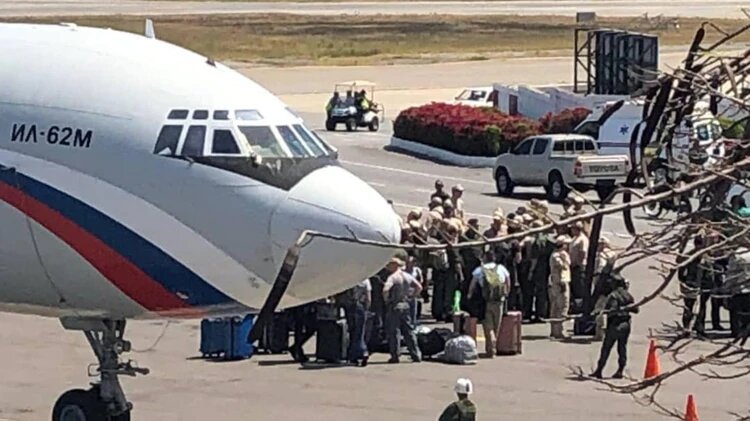
The Western alliance will determine actions to be taken after the US warned that Russia “should leave” the South American country. The issue will also be discussed in Caracas by the National Assembly, with the aim of protecting the sovereignty committed by the Kremlin’s support for the dictatorship of Nicolás Maduro.
While NATO will address among its topics of discussion, at the request of the United States, the Russian military presence in Venezuela – on the threat that it represents for the region – in parallel in Caracas the Permanent Commission of Defense and Security of the National Assembly will have, as a central point of discussion, the same issue but from the perspective that implies the violation of national sovereignty.
The ministerial meeting of the North Atlantic Treaty Organization (NATO) will be held in Washington and will have as its main theme the military role of Russia in Venezuela, after Vladimir Putin has taken action to defend his ally Nicolás Maduro.
In NATO, a geopolitical military environment is generated, where possible threats of a military nature are analyzed, so that the issue is controversial, by sending a hundred advisors to Venezuela and the opening of a training center for pilots by of Moscow.
In Russia’s support for Venezuela, the good relationship of the Minister of Defense, Vladimir Padrino López, with the Russian military has been decisive, but mainly because he enjoys the sympathy of Vladimir Putin.
Russia had already mobilized Venezuela, on December 10, two Tu-160 bombers with the capacity to transport nuclear weapons, in addition to an An-124 transport plane and an Il-62 passenger plane, according to information from the Army in Moscow . Padrino López said that the presence of these aircraft only responded to the exercises to guarantee the defense of Venezuela against external threats.
As part of the Bicentenario Angostura 2019 exercises, which started on February 10, the Bolivarian Military Aviation tried out an anti-ship missile made in Russia. Soon after, the Bolivarian Navy released a video of the military exercises, where a Sukhoi Su-30MK2V fighter-bomber is observed firing a Kh-31 anti-ship missile, both of Russian manufacture. The Nicolás Maduro regime wanted to give a demonstration of military power.
The Russian presence was causing more irritability in the Government of Donald Trump, but rose when two planes arrived in Caracas with a hundred Russian military, supposedly experts in cybersecurity, whose objective is to contribute to the maintenance of equipment purchased by Venezuela to Moscow , thanks to the cooperation agreement signed in 2001.
While this is happening in Caracas, a different event occurs with the Russians in the Bolivar state, where since their arrival they have increased the flights of aircraft by moving gold.
As the days progress, the Russian presence is also settled and, with it, the installation of an anti-aircraft shield at the El Sombrero base in Guárico state, some 200 kilometers from Caracas. Then came the training center for helicopter pilots and the ratification of the construction of an aircraft maintenance center. Trump’s reaction is that Russia “must leave Venezuela.”
The defiant response of the Russians was given by the Russian Ministry of Foreign Affairs in the voice of María Zajárova, considering that “neither Russia nor Venezuela are provinces of the United States”. Deputy Sergio Vergara, vice president of the Defense Commission of the National Assembly, said: “We are facing a community occupied and concerned about what is happening in Venezuela.”
Considers that the Russian military presence in Venezuelan territory constitutes a violation of the sovereignty and the Constitution of the Bolivarian Republic of Venezuela, by allowing a military mission that has not been approved by the National Assembly.
The protest was swift, according to the parliamentarian. “We have requested the immediate departure of Russian troops that are not justified or authorized to remain in the national territory.”
It highlights the statement of the Russian communiqué for Colombia, “being practically threatened by the Russians in the face of any incursion into Venezuelan territory, that is what disturbs the peace in the region.”
Deputy Vergara requested last week to the International Community that the members of the Inter-American Treaty of Reciprocal Assistance (Triar) call their consultation body and evaluate the situation.
With information from Infobae.







